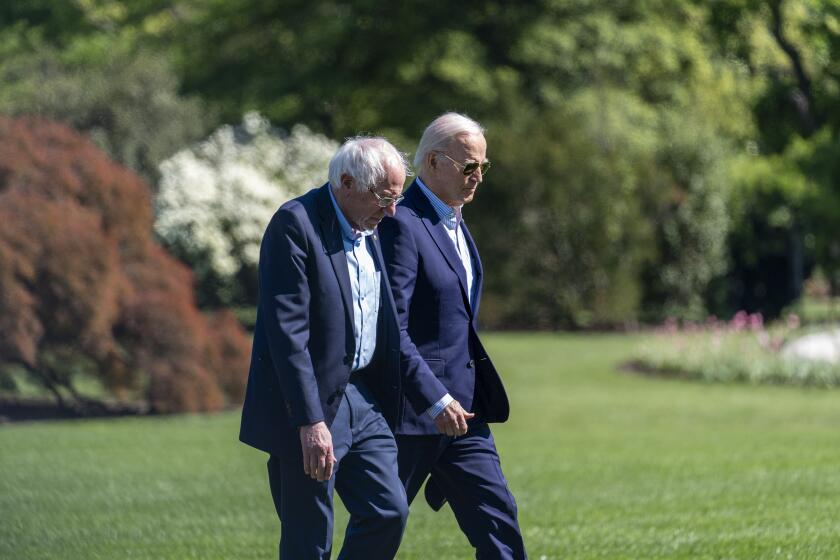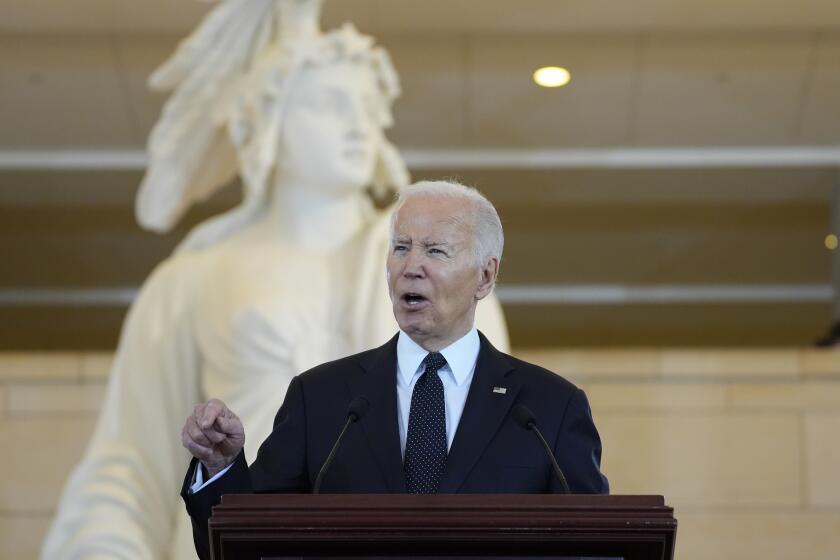Court Is Asked to Overturn NAFTA Ruling : Trade: White House argues the President is responsible for pact, making it exempt from environmental law.
The Clinton Administration’s chief legal advocate Tuesday urged a federal appeals court to overturn a ruling that would require the government to assess the environmental impact of the North American Free Trade Agreement.
U.S. Solicitor General Drew S. Days III argued that because President Clinton, and not a government agency, is ultimately responsible for carrying out the trade pact, NAFTA is exempt from a 1970 environmental law. That law, the National Environmental Protection Act, requires the government to conduct environmental impact studies for decisions by federal agencies that affect the environment.
After hearing arguments from Days and a lawyer representing environmental and public interest groups, a three-judge panel could decide in a matter of weeks whether to overturn a June decision by U.S. District Judge Charles Richey that many thought might deal a serious blow to NAFTA.
The trade agreement, which Clinton has indicated he plans to submit to Congress for ratification this fall, would remove most trade barriers among the United States, Canada and Mexico, creating the world’s largest free-trade market.
Tuesday’s arguments hinged on whether a President or a federal agency bears the primary responsibility for NAFTA.
Days argued that the environmental protection act does not extend to trade agreements because they are actions by the President, not a federal agency. “It is clear that the President of the United States, William Jefferson Clinton, is in the dock, so to speak,” Days said.
Patti Goldman, a lawyer representing Public Citizen, the Sierra Club and Friends of the Earth, argued that the U.S. trade representative’s office is responsible for the agreement and that, because it is a federal agency, an environmental impact statement is required.
“We are seeking to enforce an obligation on an agency when it makes a recommendation,” she said.
Days countered that Clinton is “directly involved from beginning to end” in the agreement, while the role of the trade representative’s office is only advisory.
Environmental groups have opposed NAFTA because they fear it would induce U.S. businesses to relocate to Mexico, where they might take advantage of environmental regulations that are less stringent.
If the panel--three judges from the U.S. Circuit Court of Appeals for the District of Columbia--upholds Richey’s decision, it could throw an additional obstacle onto NAFTA’s already treacherous path through Congress, where it faces strong opposition.
Times staff writer Mary-Pat Moynihan contributed to this report.
More to Read
Start your day right
Sign up for Essential California for news, features and recommendations from the L.A. Times and beyond in your inbox six days a week.
You may occasionally receive promotional content from the Los Angeles Times.






